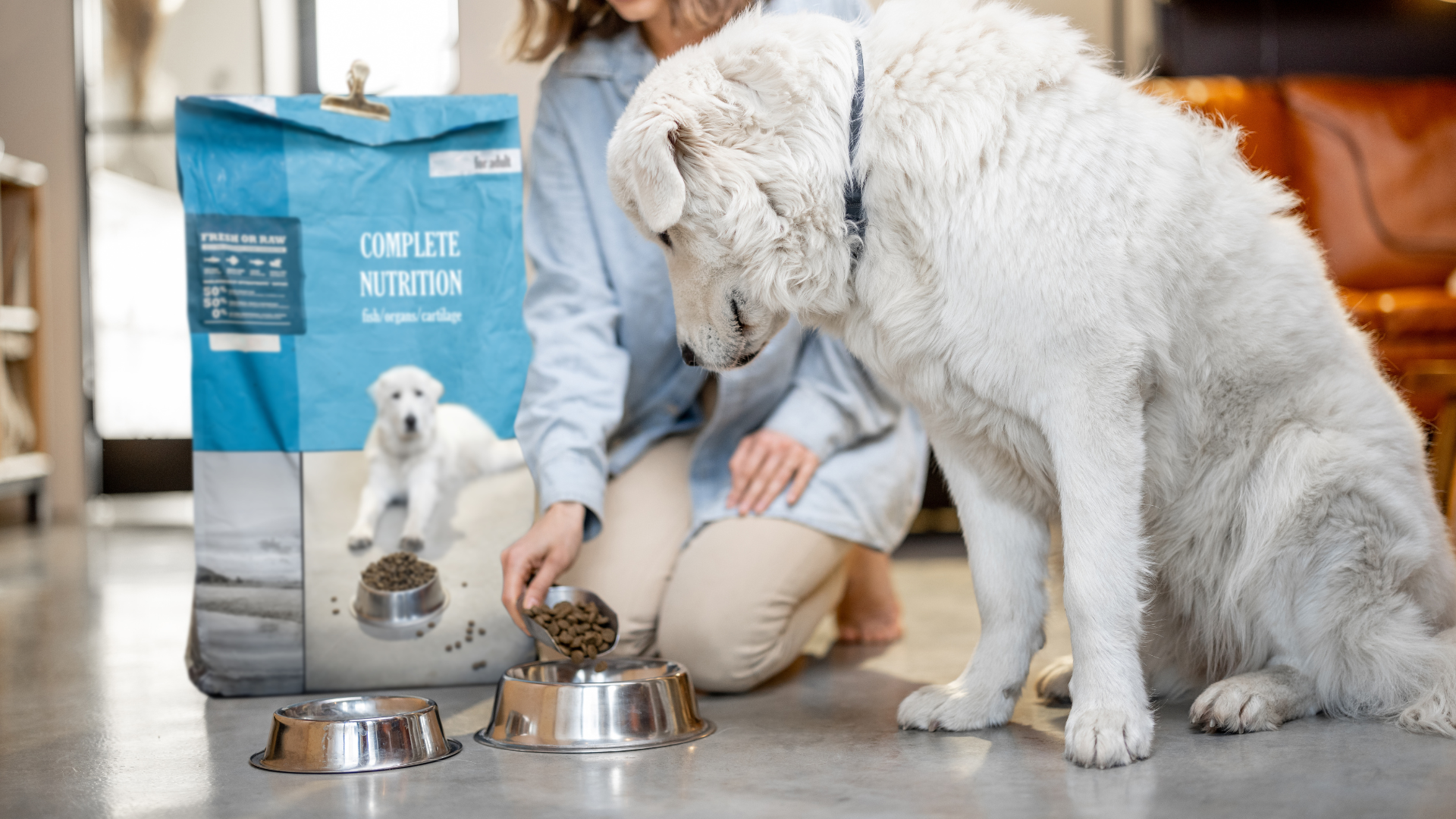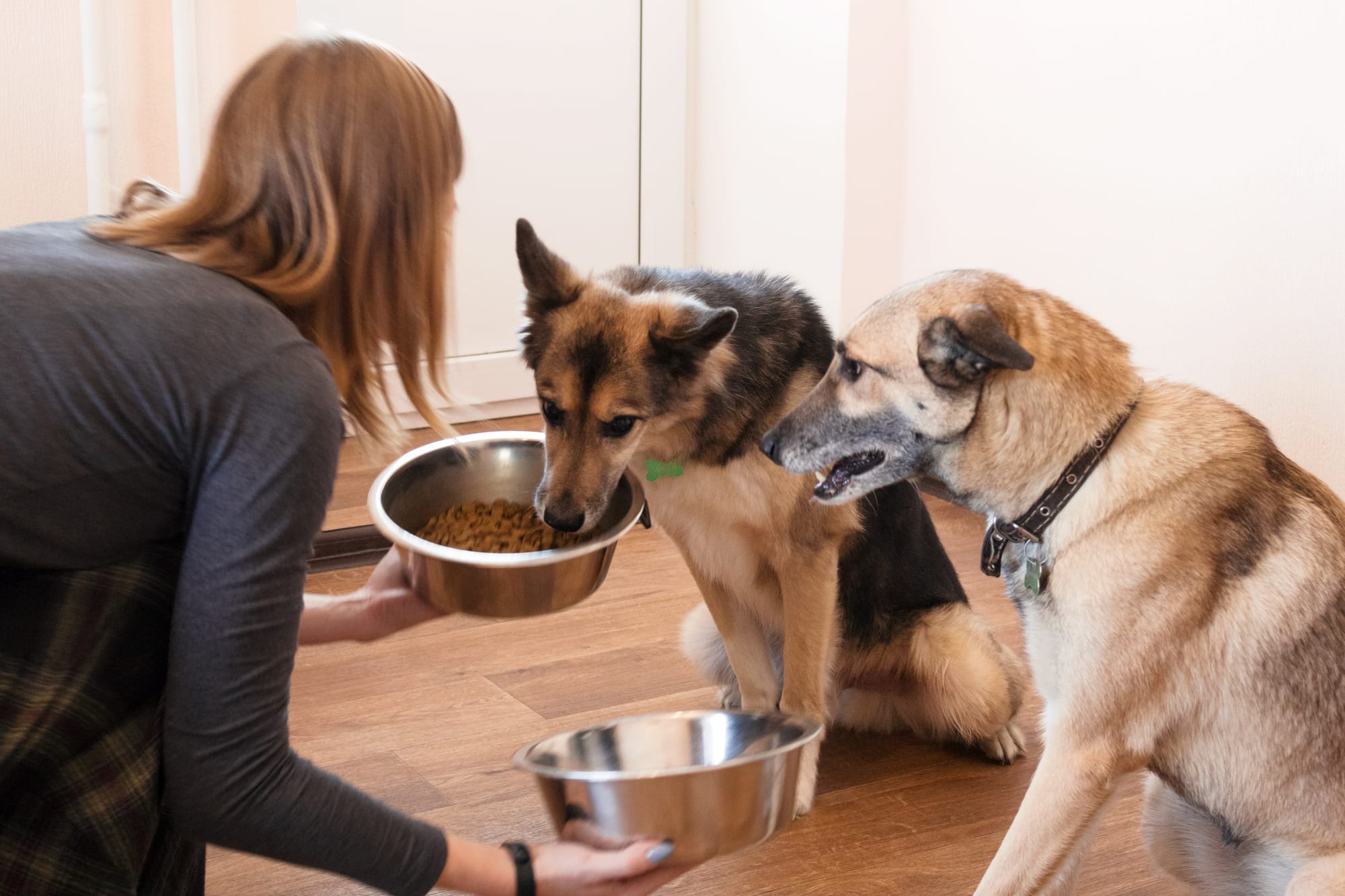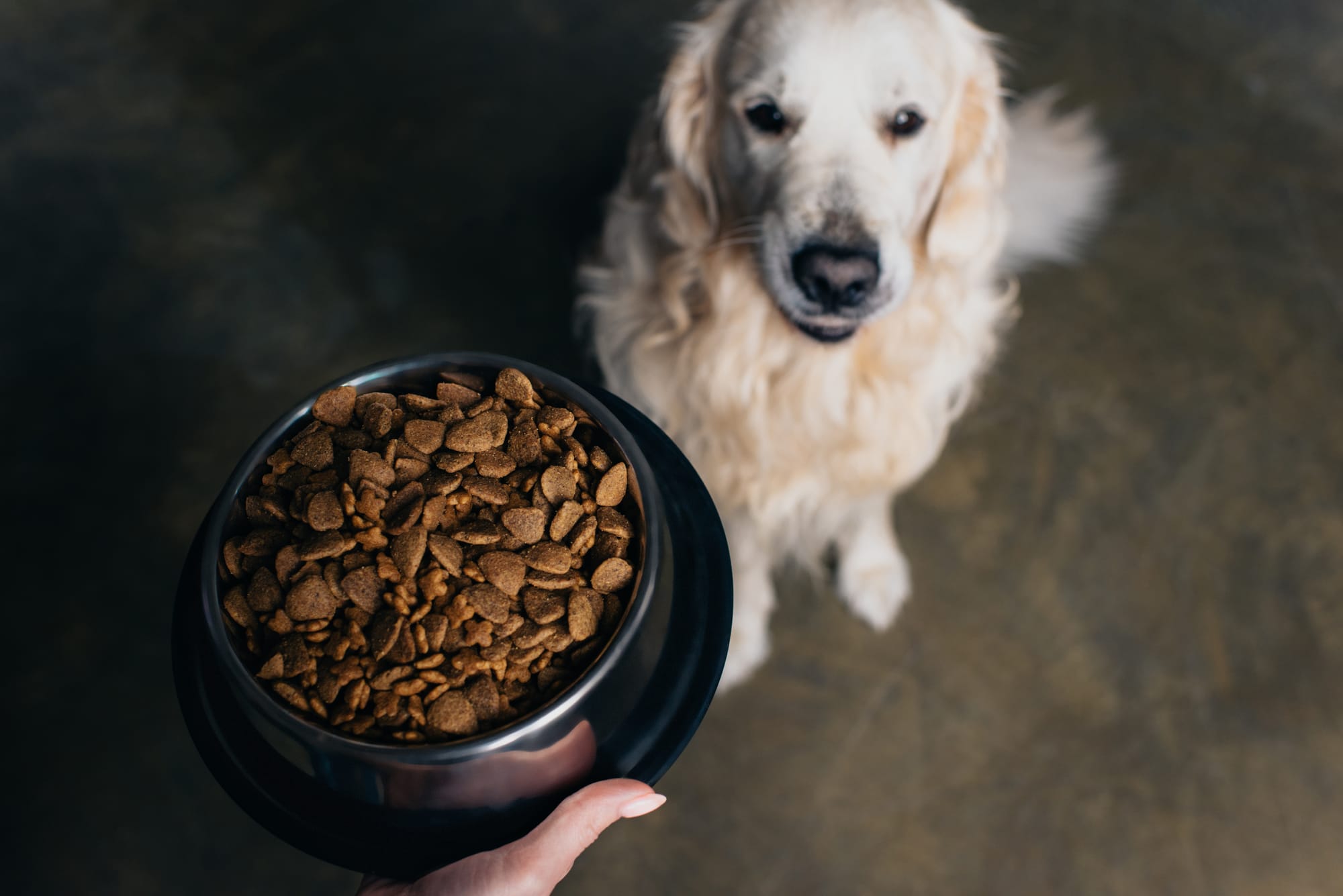Dogs are known for their love of food, and many pet owners want to ensure that their furry friends are getting the nutrients they need. One question that often comes up is how fast do dogs digest food? Understanding the digestive process can help pet owners make informed decisions about their dog's diet and overall digestive health.

The answer to how fast dogs digest food can vary depending on several factors. The size, age, and breed of the dog can all play a role in digestion speed. Additionally, the type of food and how it is prepared can impact how quickly it is digested. Understanding these factors can help pet owners determine the best feeding schedule and diet for their dog. In this article, we will explore the digestive process in dogs and answer the question of how fast dogs digest food.
Understanding Dog Digestion
Dogs are known for their voracious appetite and love for food. However, have you ever wondered how fast dogs digest their food? Understanding the canine digestive system can help you provide the right nutrition for your furry friend.

Canine Digestive System Anatomy
The digestive system of dogs is similar to humans and consists of the mouth, esophagus, stomach, small intestine, large intestine, rectum, and anus. The digestive process begins in the mouth where the teeth and salivary glands break down food.
The food then travels down the esophagus and enters the stomach where it is mixed with digestive juices and enzymes. The stomach is responsible for breaking down protein and other nutrients.
The small intestine is where most of the nutrients are absorbed into the bloodstream. The large intestine and colon are responsible for absorbing water and electrolytes, and eliminating waste from the body.
The Digestive Process in Dogs
The digestive process in dogs can take anywhere from 8 to 12 hours. The speed at which food is digested depends on various factors such as the type of food, age of the dog, and overall health.
Peristalsis, a series of muscle contractions, moves food through the digestive tract. Digestive juices and enzymes produced by the pancreas and liver aid in the breakdown of food.
The ileum, a part of the small intestine, is responsible for absorbing nutrients such as vitamins and minerals. The large intestines and colon are responsible for eliminating waste from the body.
In conclusion, understanding the canine digestive system can help you provide the right nutrition for your furry friend. A balanced diet, proper hydration, and regular exercise can promote a healthy digestive system in dogs.

Diet and Nutrient Absorption
Role of Diet in Digestion
A dog's diet plays a crucial role in its digestive health. The type of food and nutrients it consumes can affect how quickly or slowly its food is digested. Dogs that consume high amounts of fats and proteins tend to have slower digestion, while those on a high-carbohydrate diet have faster digestion. Raw food diets are also known to promote faster digestion due to their higher water content and lower fat content.
Water intake is also essential for proper digestion. Dogs that are dehydrated may experience slower digestion, leading to constipation and other digestive issues. It is recommended to provide dogs with access to clean, fresh water at all times.
Supplements such as probiotics can aid in digestion by promoting the growth of beneficial bacteria in the gut. However, it is important to consult with a veterinarian before adding any supplements to a dog's diet.
How Nutrients Are Absorbed
Once food is broken down in the stomach, it moves to the small intestine where most of the nutrients are absorbed into the bloodstream. Fats are broken down into fatty acids and glycerol, which are then absorbed into the lymphatic system. Proteins are broken down into amino acids and absorbed into the bloodstream. Carbohydrates are broken down into glucose and absorbed into the bloodstream.
The absorption of nutrients is influenced by the dog's digestive health and the type of food consumed. Dogs with digestive issues may have difficulty absorbing nutrients, leading to malnutrition. It is important to provide dogs with a balanced diet that includes all necessary nutrients for optimal health.

Factors Influencing Digestion Speed
When it comes to how fast dogs digest food, several factors come into play. Understanding these factors can help dog owners make informed choices about their pet's diet and overall health.
Impact of Dog Size and Breed
Dog size and breed can significantly affect digestion speed. Generally, smaller dogs have faster digestion times than larger dogs. This is because smaller dogs have smaller stomachs and shorter digestive tracts, which means food spends less time in their systems. Additionally, different breeds have different digestive systems, so it's important to choose a diet that's appropriate for your dog's breed.
Effect of Food Type and Meal Size
The type of food a dog eats can also impact digestion speed. Wet food, for example, is easier to digest than dry food because it contains more moisture. Similarly, smaller meals are easier to digest than larger meals because the stomach has to work less to break down the food. It's important to choose a diet that's appropriate for your dog's size and activity level, and to feed them smaller, more frequent meals throughout the day.
The Role of Exercise and Activity Level
Exercise and activity level can also impact digestion speed. Dogs that are more active tend to have faster digestion times because their bodies are working harder to break down food and absorb nutrients. Exercise also helps stimulate the digestive system, which can help move food through the system more quickly. It's important to provide your dog with plenty of exercise and playtime to keep their digestion system healthy.
In conclusion, several factors can influence how fast dogs digest food, including size, breed, food type, meal size, exercise, and activity level. By understanding these factors, dog owners can make informed choices about their pet's diet and overall health.
Common Digestive Issues in Dogs
Digestive problems are a common issue in dogs, and can be caused by a variety of factors including stress, disease, and dietary indiscretions. Identifying digestive problems early on is important to prevent further complications and ensure your pet's health.
Identifying Digestive Problems
Some common signs of digestive problems in dogs include diarrhea, constipation, vomiting, and changes in the appearance of waste or feces. In some cases, dogs may also exhibit signs of bloating, which can be a sign of a more serious condition such as gastric dilatation volvulus.

Stress can also play a role in digestive problems, and dogs may exhibit symptoms such as diarrhea or vomiting during times of increased stress. Exocrine pancreatic insufficiency, intestinal parasites, dysbiosis, and liver disease are other potential causes of digestive problems in dogs.
Preventing and Treating Digestive Disorders
Preventing digestive disorders in dogs can be achieved through proper diet and exercise, as well as avoiding dietary indiscretions such as feeding table scraps or human food. It is also important to ensure that your dog is up to date on all necessary vaccinations and deworming treatments.
If your dog exhibits signs of a digestive disorder, it is important to seek veterinary care immediately. Treatment may involve dietary changes, medication, or surgery depending on the underlying cause of the problem. In some cases, dogs may require hospitalization for more intensive treatment.
Overall, it is important to be aware of the signs and symptoms of digestive problems in dogs, and to seek veterinary care promptly if any issues arise. With proper care and attention, most digestive disorders can be successfully treated and managed, ensuring your pet's health and well-being.
Comparing Dog and Cat Digestion
Anatomical Differences
Although dogs and cats are both carnivorous animals, they have different anatomical structures that affect the way they digest food. For instance, cats have a shorter digestive tract than dogs, which means that food passes through their system faster. This is because cats are obligate carnivores, and their digestive systems are adapted to process meat-based diets efficiently.
Dogs, on the other hand, have a longer digestive tract, which allows them to digest a wider variety of foods, including plant-based foods. This is because dogs are omnivores, and their digestive systems are adapted to process both meat and plant-based diets.
Digestive System Functionality
The digestive system of dogs and cats also functions differently. For example, dogs have a more acidic stomach than cats, which helps them to break down and digest food faster. This is why dogs can eat larger meals and go longer periods without eating compared to cats.
Cats, on the other hand, have a higher protein requirement than dogs, and their digestive system is designed to extract as much protein as possible from their food. This is why cats need to eat more frequently than dogs and require a diet that is high in protein.
In terms of digestion speed, both dogs and cats can digest food in a matter of hours. However, the rate of digestion can vary depending on the type of food and the individual animal's digestive health. Puppies and kittens also have faster digestion rates than adult dogs and cats, as their digestive systems are still developing.
Overall, it is important to ensure that both dogs and cats are fed a healthy and balanced diet that meets their individual nutritional needs. This will help to maintain their digestive health and ensure that they can digest food efficiently.
Improving Digestive Health
Appropriate Diet and Supplements
One of the most important factors in maintaining a healthy digestive system for dogs is providing them with an appropriate diet. A balanced diet that contains all the necessary nutrients, such as protein, fiber, and carbohydrates, is essential for good digestive health. It is recommended to feed dogs with high-quality, easily digestible food that is appropriate for their age and breed.
In addition to a balanced diet, supplements can also help improve a dog's digestive health. Probiotics, for example, can help maintain a healthy balance of bacteria in the gut, which can improve digestion and reduce the risk of gastrointestinal issues. It is important to consult with a veterinarian before adding any supplements to a dog's diet to ensure they are safe and appropriate.

Regular Veterinary Check-Ups
Regular veterinary check-ups are also important for maintaining a dog's digestive health. A veterinarian can identify any potential issues early on and provide appropriate treatment. Senior dogs, in particular, may require more frequent check-ups as they are more susceptible to digestive issues.
During a check-up, a veterinarian may also recommend specific dietary changes or supplements based on a dog's individual needs. They can also provide guidance on feeding schedules and portion sizes to ensure a healthy digestive system.
Overall, maintaining a healthy diet and regular veterinary check-ups are essential for improving a dog's digestive health. By providing proper nutrition and monitoring their health, pet owners can help ensure their furry friends lead happy and healthy lives.
Special Considerations
Puppy Digestion
Puppies have a faster metabolism than adult dogs, which means they digest food more quickly. This is because they need more energy to fuel their growth and development. As a result, they may need to eat more frequently than adult dogs. It is important to feed them a high-quality, nutrient-dense diet that is appropriate for their age and size. Overfeeding them can lead to health problems such as obesity and digestive issues.
Senior Dog Digestive Care
As dogs age, their digestive system may not work as efficiently as it used to. Senior dogs may have a reduced ability to absorb nutrients from their food, which can lead to malnutrition. They may also be more prone to digestive issues such as constipation and diarrhea. Feeding them a diet that is easy to digest and contains high-quality protein can help support their digestive health. It is also important to monitor their weight and adjust their diet accordingly.
Inflammatory Bowel Disease (IBD) in Dogs
Inflammatory bowel disease (IBD) is a condition that affects the digestive tract of dogs. It is characterized by inflammation and damage to the lining of the digestive tract, which can lead to a range of symptoms including vomiting, diarrhea, and weight loss. Dogs with IBD may need to eat a special diet that is low in fat and easy to digest. They may also benefit from supplements such as probiotics and prebiotics, which can help support their digestive health.
Overall, it is important to pay attention to your dog's digestive health and make sure they are eating a diet that is appropriate for their age, size, and health status. Adding pumpkin to their diet can also help support their digestive health. If you notice any signs of digestive issues such as vomiting, diarrhea, or loss of appetite, it is important to consult with your veterinarian as these can be signs of a more serious, potentially life-threatening condition.
Conclusion

Understanding how fast dogs digest food is key to providing optimal care for our beloved pets. By being mindful of factors that influence digestion speed and monitoring our dog's digestive health, we can promote their well-being and ensure they lead happy and healthy lives.
Frequently Asked Questions
- What is the typical digestion time for a dog after consuming a meal?
- The typical digestion time for a dog after consuming a meal can vary depending on factors such as the size of the dog, the type of food consumed, and the dog's individual metabolism. However, in general, it takes dogs about 6 to 8 hours to digest their food and pass it through their digestive system.
- Is there a difference in digestion rate between dry food and wet food for dogs?
- Yes, there is a difference in digestion rate between dry food and wet food for dogs. Wet food is generally easier to digest and passes through the digestive system faster than dry food. This is because wet food has a higher moisture content, which helps to soften the food and aid in digestion.
- What is the recommended waiting period for exercise after a dog has eaten?
- The recommended waiting period for exercise after a dog has eaten is about 2 hours. This allows enough time for the food to move through the dog's digestive system and reduces the risk of digestive issues or discomfort during exercise.
- How does a dog's size affect its food digestion time?
- A dog's size can affect its food digestion time. Smaller dogs generally have a faster metabolism and a shorter digestive tract, which means they digest their food faster than larger dogs. Larger dogs, on the other hand, have a slower metabolism and a longer digestive tract, which means they digest their food more slowly.
- At what point is a puppy's digestive system fast enough to allow for regular pooping?
- A puppy's digestive system is generally fast enough to allow for regular pooping by the time they are about 8 weeks old. However, it's important to note that puppies have smaller digestive systems and may need to go outside more frequently than adult dogs.
- How long should you wait to administer medication after a dog has eaten?
- You should wait at least 1 hour to administer medication after a dog has eaten. This allows enough time for the food to move through the dog's digestive system and reduces the risk of the medication interacting with the food in the stomach. However, it's always best to consult with a veterinarian for specific instructions on administering medication to your dog.




